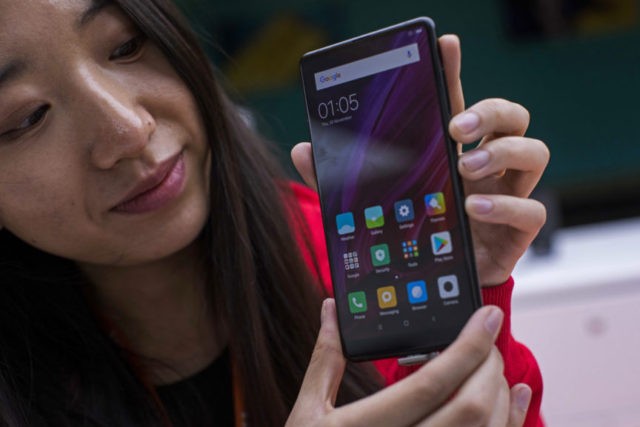HONG KONG (AP) — Chinese smartphone maker Xiaomi filed documents Thursday with Hong Kong’s stock exchange operator for an initial public offering that could be the world’s biggest share sale in years.
Beijing-based Xiaomi is the world’s fourth biggest smartphone maker by shipment volume, according to International Data Corp.
The listing documents provided no financial details about the share sale or the company’s valuation. A date for the listing was not disclosed. The newspaper South China Morning Post cited unnamed banking sources saying Xiaomi plans to raise up to $10 billion in a deal that would value the company at $100 billion.
That would make it the biggest IPO since Chinese e-commerce giant Alibaba’s $21.8 billion IPO in 2014 on the New York Stock Exchange.
Xiaomi, founded in 2010, has grown quickly on the strength of smartphone handsets priced as low as $115 and Internet-based marketing and distribution.
The listing documents offered a glimpse of Xiaomi’s finances, with the company reporting that revenue rose by two-thirds last year to 114.6 billion yuan ($18 billion), including 80 billion yuan from its smartphone division. Xiaomi’s business also includes also partnering with “Internet of Things” companies to develop hundreds of connected lifestyle devices like rice cookers, robot vacuum cleaners and coffee makers.
Operating profit tripled to 12.2 billion yuan ($1.9 billion) but the company still lost nearly 44 billion yuan ($6.9 billion) in 2017, mainly due to the cost of converting preferred shares held by investors.
Xiaomi’s decision to go public in Hong Kong comes days after the southern Chinese financial center’s stock exchange loosened listing rules, an apparent vindication of its efforts to better compete with rival bourses in the race for blockbuster offerings.
Xiaomi is applying for a Hong Kong stock listing with dual share classes that give certain shareholders much more power, which the new rules allow. The exchange modified its regulations to accommodate such companies after losing Alibaba’s dual-class listing to New York because rules at the time only allowed a single share class.

COMMENTS
Please let us know if you're having issues with commenting.